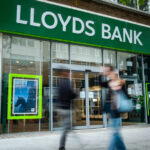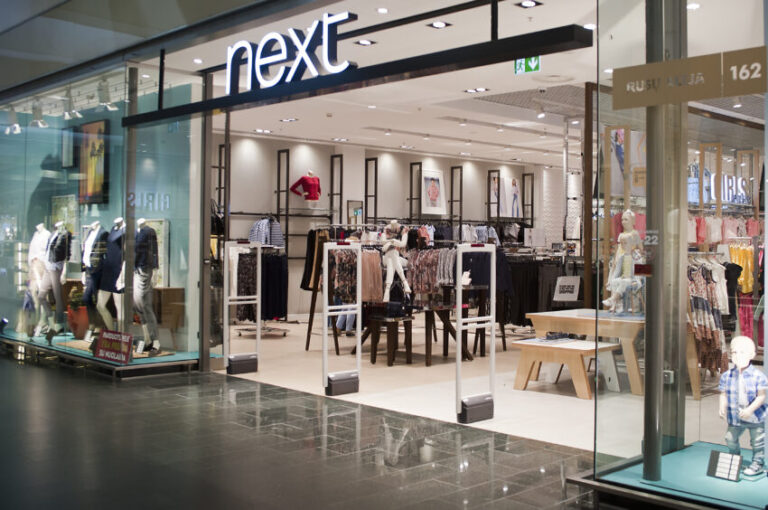[ad_1]
The boss of Next has nudged profit expectations lower for this year while warning shoppers that they will pay even higher prices for goods in an “increasingly uncertain world”.
The cautious tone comes after the fashion chain reported that last year had exceeded all expectations thanks to a boom in online sales and pent-up demand from shoppers who used their lockdown savings.
The FTSE 100 retailer, which had raised guidance for the fifth time in January, reported pre-tax profits of £823 million for the year to the end of January, 140 per cent higher than the previous year and 10 per cent better than pre-pandemic levels in 2019. This was on the back of £4.6 billion of statutory sales, 8.4 per cent better than in 2019.
Next was started in 1982 by George Davies and has about 500 shops employing 21,600 people. Its website sells hundreds of third-party brands including Joules and Tommy Hilfiger. Shares in Next fell by 184p, or 2.88 per cent, to £62.00 in morning trading, valuing the company at £8.2 billion.
Next said that the buoyancy of its sales last year contrasted with this year’s “unusually high level of geopolitical and economic uncertainty”.
Lord Wolfson of Aspley Guise, 54, chief executive, said that the company was facing five big uncertainties including the unwinding of pandemic savings, a return to spending on travel and leisure, inflation in essential goods and its own selling prices and an increase in UK taxes. In addition the business is losing £18 million in profit from the closure of its Ukrainian and Russian online business, although it is expecting better shop sales in the UK.
As a result, Next has lowered its central profit guidance by £10 million to £850 million, which would be 3.3 per cent higher than this year. Its forecast range is from £795 million to £895 million.
The volatile backdrop has also prompted Next to lower its guidance for full-price sales by £85 million although it is still expecting them to grow by 5 per cent, with income from its credit offer expected to rise as consumer finances become squeezed.
Next said that inflationary pressures meant that it expected to pass on a higher amount of its costs to shoppers and prices were expected to rise by 8 per cent, compared to its 6 per cent guidance in January.
The retailer said that prices would be 3.7 per cent higher in the first half of the year but that the rate of inflation would double in the second half, split between 6.5 per cent price increases on fashion and 13 per cent rises on homewares.
In a typically detailed analysis of inflationary pressures the business said that it expected £143 million of total cost increases this year, including £20 million of extra energy costs, £55 million of wage inflation and £6 million from the resumption of employee travel. Meanwhile it will save £79 million from lower internal costs, rising prices to cover shipping costs and lower staff incentives.
Wolfson said: “It is important to understand that the cost-of-living crisis is a supply-side crisis: the inflation we are experiencing is a symptom of underlying constraints in the supply of goods.”
A day after the chancellor’s spring statement, Wolfson said that the government “can and should ensure that those most in need can afford basic essentials, through targeted subsidies and grants. Secondly, they can take action to increase the supply of goods, property and services that are in such short supply.”
Wolfson, who has been a vocal advocate for more investment in housing, said: “We applaud the efforts the chancellor has made to help out those most in need but we are disappointed that the wider government has done little or nothing within its powers to increase the underlying supply of goods, energy and skilled workers. It is important to recognise that government interventions to ‘pay for’ inflationary increases does nothing to increase the underlying supply of goods and services.”
[ad_2]
Source link























0 Comments